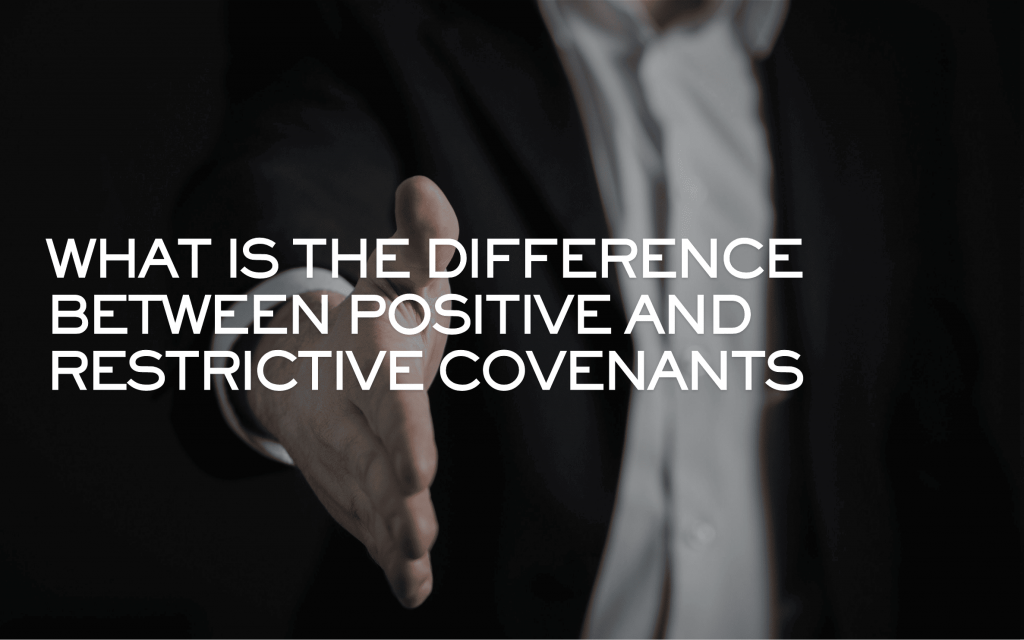When purchasing or owning a property (whether land or buildings) it is important that the owner understands the nature of covenants. A covenant is a legal obligation contained in the title to a property reflecting what cannot be done and what must be done.
A restrictive covenant is a contract between two owners of property (one having the benefit and the other having the burden) not to carry out or to limit certain acts on their own property, therefore placing a legal obligation on the owner of the property not to do something. For example, not permitting a property to be used for the sale of alcohol purposes or not to allow non-domestic animals to be kept at the property, the use and enjoyment of the property is therefore restricted.
Restrictive covenants run with and bind the property, therefore such covenants are binding on any owner of that property. Any party purchasing the said property, must comply with the restrictive covenants going forward.
A positive covenant works differently and imposes a positive action on an owner of property to do something. For example, to contribute to the maintenance of a shared accessway or to repair a shared roof.
A positive covenant does not automatically run with the property and bind future legal owners, therefore there is required to be a chain of indemnity or a renewed covenant between the original beneficiary to the said positive covenant and future legal owners to pass on the burden from the current owner to the new owner. If the current owner fails to pass this to the new owner of the property, they will still be liable to comply with the positive covenant. The current owner will require the new owner to enter a Deed of Covenant to take on the positive covenants and to ensure the burden is removed from the current owner.
The beneficiary of the positive covenant would normally protect the positive covenants being complied with by the owners of property by placing a restriction on the title to the property. such restriction would say that no disposition (for example, sale or transfer of the property or grant of a lease of the property) can be registered without a certificate being provided by the beneficiary of the said positive covenants to state the future legal owner has complied with the said restriction. This will therefore prompt the requirement of a deed of covenant being provided from future legal owners when the property is subject to a disposition, otherwise, without a deed of covenant the disposition of the property will not be accepted by the land registry for registration purposes.
If a restrictive or positive covenant was to be breached, this leaves such legal owner open to potential legal action from the party benefitting from the covenant if they wished to enforce the covenant. This could result in damages or for restrictive covenants injunctive relief being awarded to the other party benefitting from the covenant.
It is therefore important that you understand the covenants falling applicable to property before you purchase or take a lease of a property.

